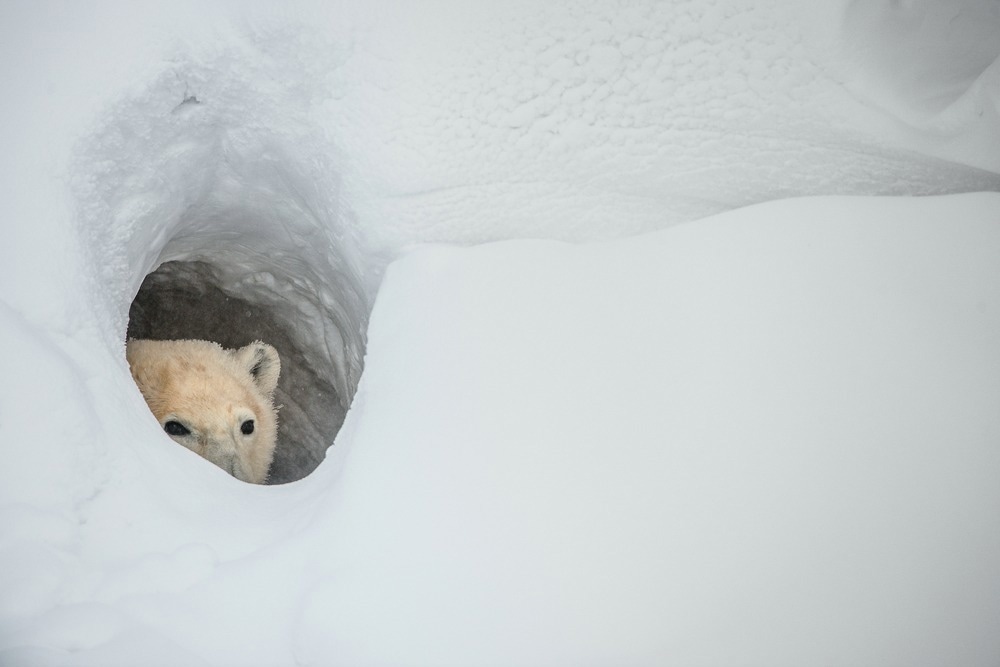Polar bear conservation during their denning phase faces challenges due to the limitations of traditional Forward Looking Infrared (FLIR) technology, which achieves a 45% detection accuracy. A recent pilot study in Churchill, Manitoba, introduced Synthetic Aperture Radar (SAR) as a potential solution, achieving a 66% accuracy in polar bear identification despite challenges.

Image Credit: Sergey Uryadnikov/Shutterstock.com
This latest study was published in the journal Ursus in October 2023.
Ongoing research indicates that machine learning can address any issues with SAR effectively. Machine learning's data analysis capabilities enhance detection accuracy in SAR images, notably through neural networks that distinguish polar bears from their surroundings, reducing false negatives and minimizing disturbances.
This technology not only improves accuracy but also reduces the risk of disturbing the animals, offering the potential for consistent den detection - a challenge that FLIR technology struggles with.
The integration of Synthetic Aperture Radar (SAR) technology with machine learning not only promises significant advancements in polar bear detection but also carries profound environmental implications. By enhancing the precision and efficiency of wildlife monitoring, this innovation supports the conservation of polar bear populations and their fragile ecosystems.
Reduced disturbance during denning periods ensures the well-being of these iconic creatures while preserving their habitats. Furthermore, SAR's adaptability extends to broader ecosystem monitoring, offering a comprehensive approach to environmental protection.
Researchers can utilize SAR for assessing polar bear populations, individual identification, and health monitoring without physical contact. Beyond polar bears, SAR and machine learning have the potential for comprehensive ecosystem monitoring and conservation, creating opportunities for environmental and ecological consultancy, governmental conservation bodies, and researchers alike.
Source:
George, B. et al. (no date) On evaluating the efficacy of air-borne synthetic aperture radar for detecting polar bears: A pilot study, BioOne Complete. Available at: https://bioone.org/journals/ursus/volume-2023/issue-34e6/URSUS-D-22-00018/On-evaluating-the-efficacy-of-air-borne-synthetic-aperture-radar/10.2192/URSUS-D-22-00018.short?tab=ArticleLink (Accessed: 19 October 2023).